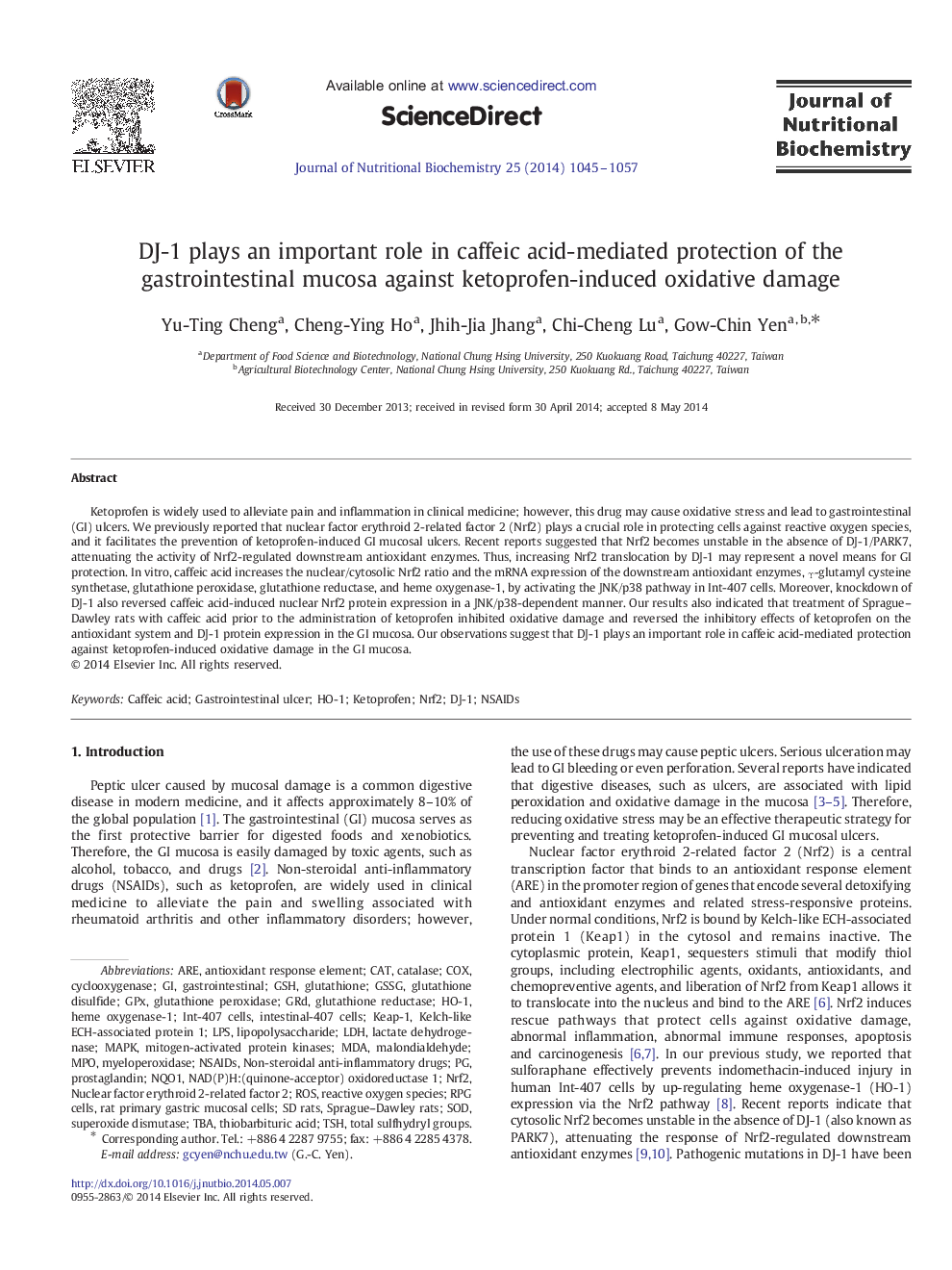| Article ID | Journal | Published Year | Pages | File Type |
|---|---|---|---|---|
| 8337114 | The Journal of Nutritional Biochemistry | 2014 | 13 Pages |
Abstract
Ketoprofen is widely used to alleviate pain and inflammation in clinical medicine; however, this drug may cause oxidative stress and lead to gastrointestinal (GI) ulcers. We previously reported that nuclear factor erythroid 2-related factor 2 (Nrf2) plays a crucial role in protecting cells against reactive oxygen species, and it facilitates the prevention of ketoprofen-induced GI mucosal ulcers. Recent reports suggested that Nrf2 becomes unstable in the absence of DJ-1/PARK7, attenuating the activity of Nrf2-regulated downstream antioxidant enzymes. Thus, increasing Nrf2 translocation by DJ-1 may represent a novel means for GI protection. In vitro, caffeic acid increases the nuclear/cytosolic Nrf2 ratio and the mRNA expression of the downstream antioxidant enzymes, Ï-glutamyl cysteine synthetase, glutathione peroxidase, glutathione reductase, and heme oxygenase-1, by activating the JNK/p38 pathway in Int-407 cells. Moreover, knockdown of DJ-1 also reversed caffeic acid-induced nuclear Nrf2 protein expression in a JNK/p38-dependent manner. Our results also indicated that treatment of Sprague-Dawley rats with caffeic acid prior to the administration of ketoprofen inhibited oxidative damage and reversed the inhibitory effects of ketoprofen on the antioxidant system and DJ-1 protein expression in the GI mucosa. Our observations suggest that DJ-1 plays an important role in caffeic acid-mediated protection against ketoprofen-induced oxidative damage in the GI mucosa.
Keywords
NSAIDSMDANQO1Heme oxygenase-1DJ-1TSHGRdGSSGHO-1GPXGSHNrf2TBACATLPSCOXMPOMAPKROScyclooxygenaseThiobarbituric acidNon-steroidal anti-inflammatory drugsGastrointestinalSODSuperoxide dismutaseantioxidant response elementnuclear factor erythroid 2-related factor 2Keap-1lactate dehydrogenaseLDHlipopolysaccharidemalondialdehydeSprague–Dawley ratsSD ratsmyeloperoxidaseAREKelch-like ECH-associated protein 1prostaglandinCatalaseCaffeic acidketoprofenmitogen-activated protein kinasesGlutathioneglutathione disulfideglutathione reductaseglutathione peroxidaseReactive oxygen species
Related Topics
Life Sciences
Biochemistry, Genetics and Molecular Biology
Biochemistry
Authors
Yu-Ting Cheng, Cheng-Ying Ho, Jhih-Jia Jhang, Chi-Cheng Lu, Gow-Chin Yen,
